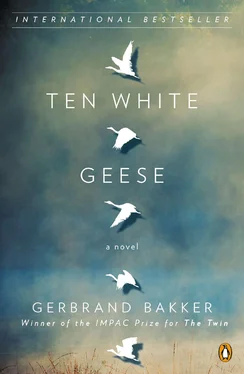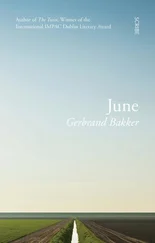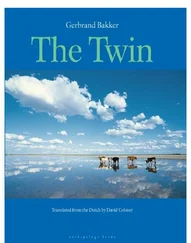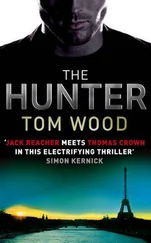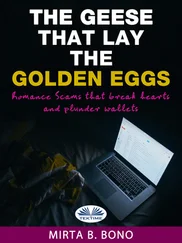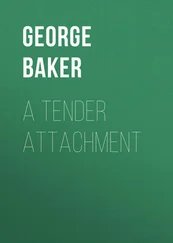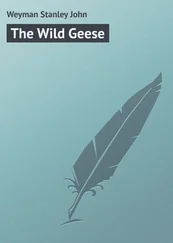‘Is there enough heating in that house?’ Awen asked.
‘It’s fine,’ she said.
‘It’s not too lonely and isolated for you?’
‘No, that’s not a problem. There are geese. And a lot of sheep now.’
‘You’re alone? No husband?’
‘Mrs Evans came here to buy her bread right up to the end,’ the baker said loudly, as if trying to drown out his wife.
‘You should get a dog,’ Awen said.
‘What would you like?’ the baker asked.
She wanted to ask what Mrs Evans had died of and how long ago, but the couple on the other side of the counter looked at her so expectantly and so inquisitively that she stuck to ordering two loaves of bread and two packets of biscuits.
‘See you later,’ she said, putting her purchases in her rucksack.
‘When you run out of bread,’ the baker said. ‘And soon we’ll have Christmas pudding.’
‘A dog,’ the baker’s wife called after her. ‘That’s a true friend.’
She pulled the shop door shut and studied the sky. It was grey. Grey and drab, but it wasn’t raining. She looked towards Mount Snowdon and remembered that she needed to keep the mountain on her left. She glanced back as she stepped off the pavement. The baker who didn’t have a name and his wife Awen were standing there motionless, watching her. They didn’t wave, they watched.
*
The route she took back wasn’t exactly the same; almost everywhere she had gone wrong on the way there, she went right on the way back. Almost. But somewhere she made another mistake after all and it took her a long time to realise she had branched off on a different dotted line. It was all so indistinguishable: the thorny hedges, the squat oaks, the pastures, the metal drinking troughs, the manic birdsong. She found that strange: it was late November, why were the birds acting like it was spring? Without planning to, she came out at the T-junction where she had first seen the mountain and suddenly knew where she was; she didn’t even need the map any more. She sat down with her back against a wooden gate, pulled a packet of biscuits out of her rucksack and ate half of them, giving herself plenty of time to study the mountain. Despite the grey weather it was covered with different colours: brown, ochre, green, even a shade of purple. It didn’t look difficult, she thought.
*
When she carried on to the drive, it was as if it were already twilight. She had to bend over and grab a tree. When she stood up straight, the pain had nowhere to go; crouched over, the dull twinges seemed to spread out a little, becoming more bearable. She couldn’t tell where precisely it was coming from: even in her arms and legs, it stabbed and nagged. She rubbed her belly and her upper arms, pressed a hand against her forehead and thought of her uncle. A little later, when she was picking her steps forward again, she saw Emily Dickinson before her, walking through her autumn garden, a first line in her head — The murmuring of bees has ceased — and trying to think how to help the poem along. No, never stung by a bee, our Emily.
The next morning she took her time over breakfast. She hadn’t been eating well, regularly skipping her evening meal. She still drank plenty. The clock said half past nine. When everything in the house was quiet, she could hear it ticking: sharp, spiteful little ticks. She didn’t want it, she didn’t want time in her kitchen. She wanted to stop the clock, but the thought of putting a chair under it was enough to make her feel sick with exhaustion. Stopping it, not just to get rid of time, but to thwart that oafish sheep farmer too. She thought about Rhys Jones a lot and it always wound her up.
She’d done her best to make something of the living room and the rooms upstairs; the kitchen was just as Mrs Evans had left it. There was a lingering smell of old woman around the sink and cupboards, an odour that, in the weeks she had lived here, she had gradually come to associate with herself. It even seemed to have impregnated the old-fashioned washing machine: immediately after she’d done a load, before she’d hung it out to dry on the rack at the top of the stairs, a musty air had already imposed itself on the fresh scent of washing powder. Yesterday at the baker’s she had clearly picked up the smell of the old woman, perhaps because the walk had made her perspire, and she had stepped sideways to avoid her reflection in the narrow mirror behind the bread rack, scared as she was of seeing a different person.
She made coffee, whisked milk, cut two slices of bread and spread them with salted butter. She spread one with blackcurrant jam and put cheese on the other, then sat down and forced herself to eat and drink all of it. She looked out, saw that the creeper, silhouetted against the clear blue sky, was growing more and more transparent, and tucked a lock of hair behind her ear. She wondered if she should go to the hairdresser’s for once. After washing the plate and mug, she went upstairs. Her diary was lying on the table in the study. She opened it and studied the dates, then worked forward from a date she was sure of and tore off a perforated corner. It was Friday 27 November.
*
She left the car in the deserted car park next to the castle and walked into town. In the street with the clock in the arch of the town wall — yet another clock — she found a hairdresser’s. It was between the doctor’s and the chemist’s; she hadn’t noticed it last time. If it hadn’t been 27 November, if this had been a normal stay, she would have enjoyed this: walking straight to a hairdresser’s in a foreign town as if nothing in the world could be more natural, as if she came here every month to have her hair done. Now the sun’s reflection on the large window was too bright for her eyes, the bread was weighing on her stomach like concrete and she felt on the point of surrender, as if she were delivering herself up to a torturer with gentle hands. And she hadn’t even gone in yet.
There was just one other customer, the doctor. He was sitting there smoking. A second cigarette was smouldering in the ashtray next to the mirror.
‘Hello, love,’ the hairdresser said. ‘Sit yourself down. I’ll just finish off this gentleman. I’m almost done.’
‘Ah, the badger lady,’ said the doctor. Everything above the cobalt-blue hairdressing cape looked like a newly hatched chick. He studied her in the mirror.
‘What’s that?’ the hairdresser asked.
‘The badger lady. A badger bit her on the foot.’
‘No! That’s impossible.’
‘That’s what I said, but it did.’
‘How?’
‘Lying down on a big rock with bare feet.’
‘Really?’
‘Yep.’
The hairdresser stopped working, standing with her comb hand and scissor hand poised in mid-air. ‘I only ever see dead badgers. On the side of the road.’ She reached out to the ashtray and sucked so hard on her cigarette that the tendons in her neck stood out. She used her other hand to wave away the smoke she exhaled.
‘Me too. They’re stupid animals. They think they own the night. That’s why they never look out.’
‘Is that it, do you think?’
‘I don’t know. I’ve lived here my whole life and I’ve never seen a live badger. Maybe you should ask the Dutchwoman.’
Now the doctor and the hairdresser both looked at her in the mirror. The small salon was thick with smoke. Fortunately she’d already picked a magazine up off the coffee table, stunned as she was at being discussed like this, and began leafing through it randomly. Nobody actually asked her anything, so she didn’t need to answer. She tried to concentrate on an article about how to arrange pumpkins on a porch while the doctor went into detail about his patients’ complaints. He had a strange way of addressing the hairdresser as an equal, as if they were two middle-aged women who had known each other for decades, two friends discussing everyday life. Cackling back at him every now and then, the hairdresser snipped away until the moment she whipped the cape off his shoulders and called out, ‘Done!’ The doctor got up out of the chair and thanked her. The hairdresser showed no sign of moving towards the till.
Читать дальше
